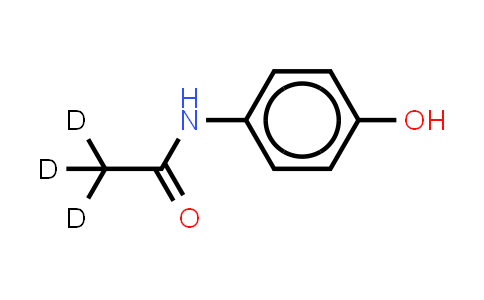
Acetaminophen NLT 98%
Product Number : MC503130
CAS Number : 103-90-2
Molecular Formula : C8H9NO2 | Molecular Weight : 154.18
Synonyms : Paracetamol;4'-Hydroxyacetanilide;4-Acetamidophenol;APAP
Quote Request| Purity | NLT 98% |
|---|---|
| Storage | at 20ºC 2 years |
| MolCore specializes in manufacturing high-purity CAS No.103-90-2, Acetaminophen with the molecular formula C8H9NO2 and molecular weight 154.18 delivering critical API intermediates for global pharmaceutical and research industries, certified under ISO quality systems. | |
* The above information is for reference only.
| Chemical Name | Acetaminophen |
|---|---|
| CAS Number | 103-90-2 |
| MDL Number | MFCD06658893 |
| Molecular Formula | C8H9NO2 |
| Molecular Weight | 154.18 |
| Synonyms | Paracetamol;4'-Hydroxyacetanilide;4-Acetamidophenol;APAP |
Acetaminophen (paracetamol) is a selective cyclooxygenase-2 (COX-2) inhibitor with an IC50 of 25.8 μM; is a widely used antipyretic and analgesic drug[1][2][3]. Acetaminophen is a potent hepatic N-acetyltransferase 2 (NAT2) inhibitor[4]. IC50 & Target: IC50: 113.7 μM (COX-1), 25.8 μM (COX-2)[1] In Vitro: In vitro, acetaminophen elicites a 4.4-fold selectivity toward COX-2 inhibition (IC50 113.7 μM for COX-1; IC50 25.8 μM for COX-2). Following oral administration of the drug, maximal ex vivo inhibitions are 56% (COX-1) and 83% (COX-2). Acetaminophen plasma concentrations remaine above the in vitro IC50 for COX-2 for at least 5 h postadministration. Ex vivo IC50 values (COX-1: 105.2 μM; COX-2: 26.3 μM) of acetaminophen compared favorably with its in vitro IC50 values. In contrast to previous concepts, acetaminophen inhibited COX-2 by more than 80%, i.e., to a degree comparable to nonsteroidal antiinflammatory drugs (NSAIDs) and selective COX-2 inhibitors. However, a >95% COX-1 blockade relevant for suppression of platelet function is not achieved[1]. MTT assay shows that Acetaminophen (APAP) in a dose of 50 mM significantly (p<0.001) reduces cell viability to 61.5±6.65%. Interestingly, the significant (p<0.01) increase in cell viability to 79.7±2.47% is observed in the Acetaminophen/HV110 co-treated cells, compared to Acetaminophen treated cells[2]. In Vivo: Administering Acetaminophen (250 mg/kg, orally) to the mice causes significant (p<0.001) liver damage and necrosis of cells as evidenced by the elevated serum hepatic enzymes alanine aminotransferase (ALT), aminotransferase (AST), alkaline phosphatase (ALP), and gamma-glutamyl transferase (γGT) compared with normal group. Conversely, effects of pretreatment with different doses of citral (125, 250, and 500 mg/kg) exhibited a significant (p<0.05) decrease in serum activities of ALT (91.79%, 93.07%, and 95.61%, resp.), AST (93.40%, 91.89%, and 96.52%, resp.), ALP (39.29%, 37.07%, and 59.80%, resp.), and γGT (92.83%, 91.59%, and 93.0%, resp.), when compared to the Acetaminophen group. Similar results were found in pretreatment with SLM on the activity of ALT (95.90%), AST (95.03%), ALP (70.52%), and γGT (92.69%)[3].
© Copyright 2015-2025 Hangzhou MolCore BioPharmatech Co.,Ltd. All rights reserved.
